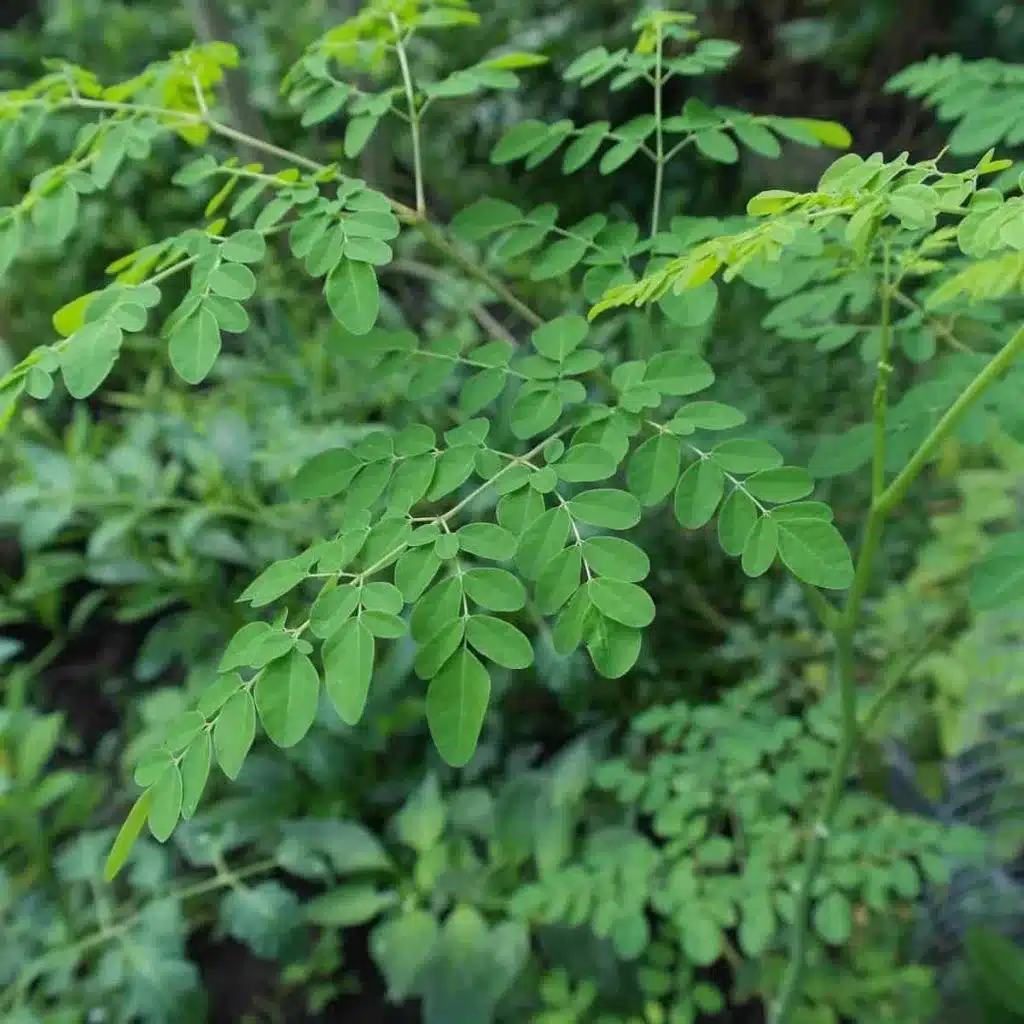The Benefits of Moringa in Farming
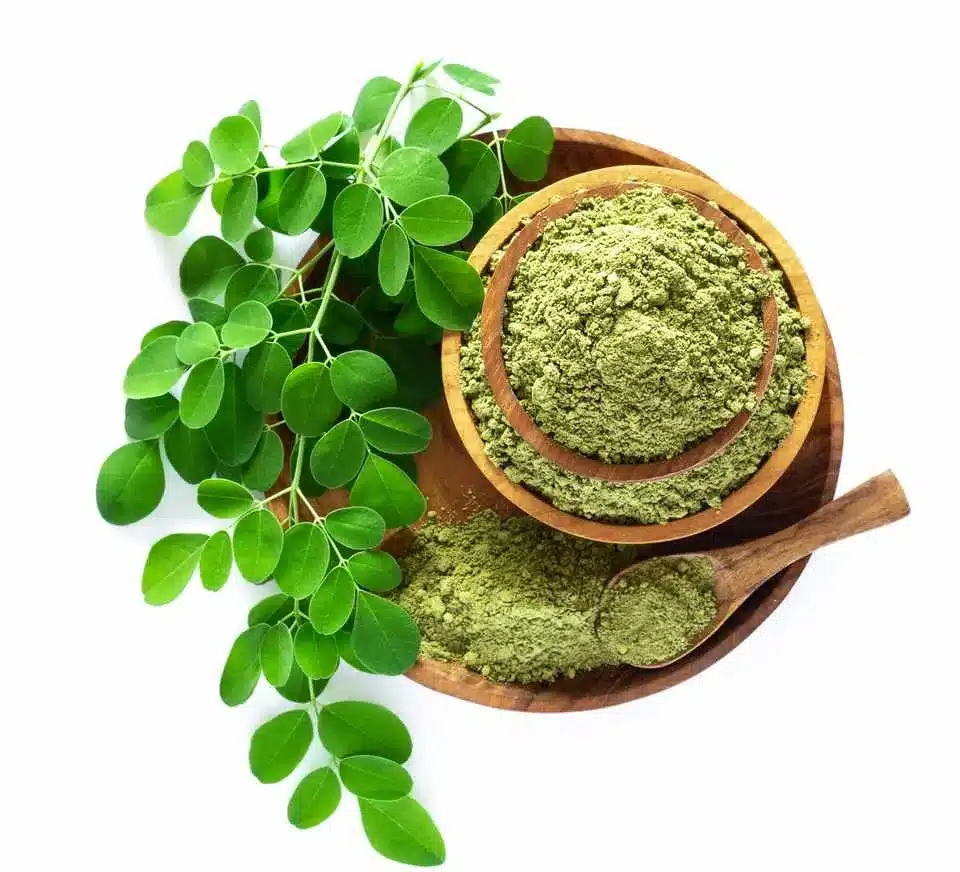
Moringa: A Nutrient Powerhouse

High in Vitamins
Moringa leaves contain high levels of Vitamin C and Beta Carotene, both essential nutrients for healthy plants and animals.

Rich in Protein
Moringa leaves contain 18 essential amino acids, making them a complete plant-based protein source for livestock and humans alike.

Potent Antioxidants
Moringa leaves contain powerful antioxidants that reduce oxidative stress and improve the overall health of soil, plants, and animals.
Moringa: The All-Natural Pesticide
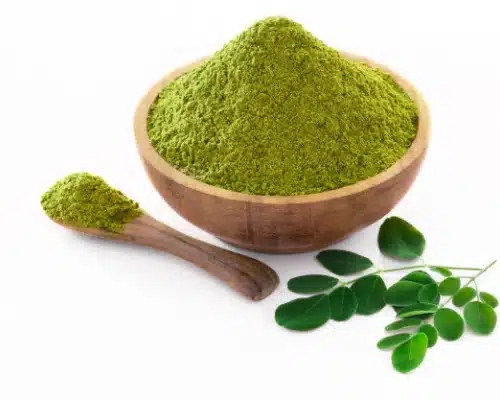
More Sustainable
CMS is a more sustainable alternative to synthetic fertilizers. It improves soil fertility and plant growth without harming the environment.
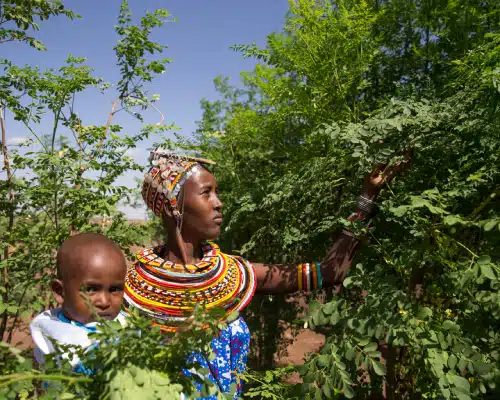
Less Nutrient Runoff
CMS has a lower solubility than synthetic fertilizers, which means that it has a lower risk of causing nutrient runoff and leaching, reducing the environmental impact.
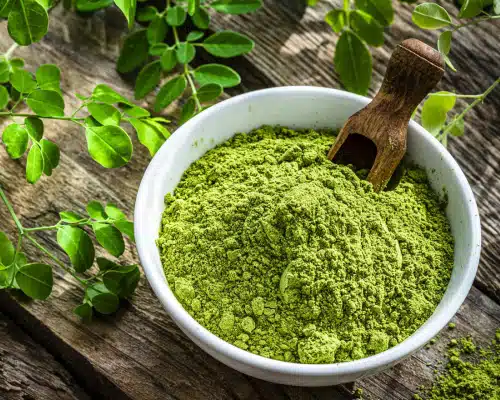
Improved Plant Growth
Compared to synthetic fertilizers, CMS provides valuable micronutrients that result in better plant growth, yield, and quality.
Moringa: The Yield Booster
Improves Soil Quality
By decomposing quickly and fixing nitrogen in the soil, Moringa helps create a healthy microenvironment for crops to thrive.
Increases Yields
Studies have shown that crops treated with Moringa leaf extract can yield up to 35% more produce.
Reduces Water Usage
Moringa's deep root system allows it to access water that other plants can't, making it a drought-tolerant crop and reducing overall water usage on farms.
Moringa: A Sustainable Option
Helps Deforestation
Moringa can be grown on deforested land, helping to prevent erosion and restore soil health.
Local Resource
Moringa is an indigenous crop, meaning that it can be grown and harvested locally, reducing transportation costs and emissions.
Low Maintenance
Moringa requires minimal maintenance, making it a lowcost and low-labor option for farmers.
The Challenges of Integrating Moringa in Farming Systems
1. Lack of Awareness
Many farmers are not aware of the benefits of Moringa and how to properly integrate it into their existing farming systems.2. Limited Market
There is currently a limited market for Moringa products, making it hard for farmers to earn a profit from their crops.3. Processing Difficulties
Moringa leaves need to be processed quickly after harvesting, otherwise they can spoil and lose their potency.Conclusion and Future Possibilities
While there are challenges to integrating Moringa into farming systems, the benefits are clear. As awareness grows and demand for sustainable products and practices increases, Moringa is poised to become an essential component of farming systems worldwide.

Growth Potential
Moringa is a fast-growing crop that can be harvested year round, making it a valuable addition to any farming system.
Multiple Uses
Moringa leaves, seeds, and oil can be used for food, animal feed, and even biofuel, making it a versatile crop with multiple revenue streams.

